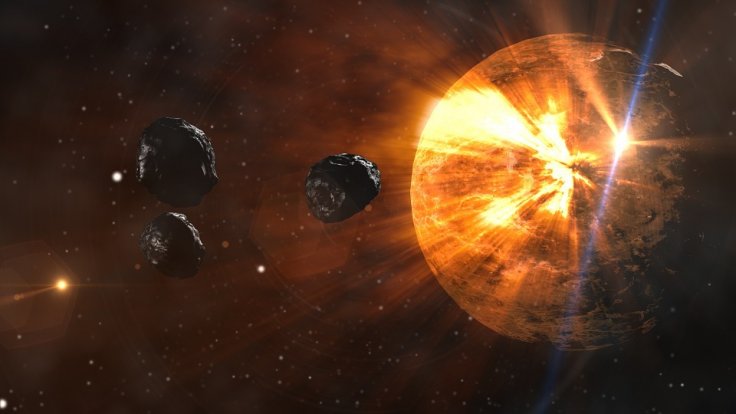
Several top space scientists including Neil deGrasse Tyson strongly believe that earth will face a doomsday-like scenario in the future due to possible asteroid hits. In order to protect the earth from such events, NASA, the United States space agency is busy developing its planetary defense weapon, that could deviate the collision trajectory of rogue space bodies.
Now, the space agency has apparently discovered an asteroid with the code name '481394 2006 SF6' which will make its close flyby on November 21, 2019. It should be noted that this asteroid is classified as an Apollo, which means it is one of the dangerous space rocks that might pose a real threat to the earth.
This asteroid measuring 650 meters in diameter is currently hurtling toward the earth at a speed of 18,000 miles per hour, and considering the current trajectory, it will whiz past the earth without causing any damages. However, several factors including the gravitational keyhole could change the trajectory of this space body, and if it happens, earth will sometimes witness a mid-air explosion or hard impact which could result in devastating effects.
The Yarkovsky effect is another crucial factor that could increase the chances of a possible asteroid collision. "The Yarkovsky effect is named for the nineteenth-century Russian engineer who first proposed the idea that a small rocky space object would, over long periods of time, be noticeably nudged in its orbit by the slight push created when it absorbs sunlight and then re-emits that energy as heat," NASA explains.
A few weeks back, it has been reported that Dr Natalie Starkey, a scientist and the author of the book 'Catching Stardust' had warned that an asteroid impact in the Atlantic ocean could wipe out millions of lives in a second. Starkey added that a future asteroid impact will not only affect humans but will cause threats to other species as well.








